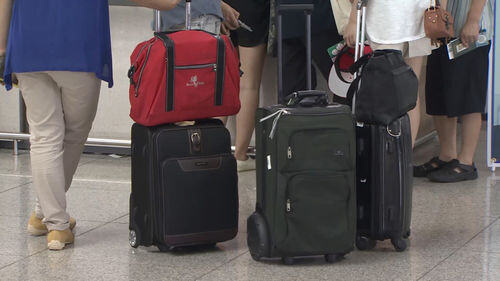
Seoul, South Korea – As South Korea's economy continues to grow, a growing number of citizens are opting for overseas vacations over domestic tourism, according to a recent survey. This trend is particularly pronounced among younger generations, who are increasingly attracted to the perceived value and experiences offered by foreign destinations.
A Google Trends analysis conducted by Asia Today showed a significant disparity between search interest for "domestic travel" and "overseas travel" over the past year. Searches for overseas destinations consistently outpaced those for domestic ones, especially during peak travel periods like summer.
This shift in travel preferences can be attributed to several factors, including:
Rising income levels: South Korea's growing economy has led to increased disposable income, enabling more people to afford international travel.
Desire for premium experiences: Many Koreans are seeking out luxurious experiences, such as high-end hotels and gourmet dining, which they believe are more readily available and affordable in foreign destinations.
Influencer culture and social media: The rise of social media and travel influencers has played a significant role in shaping travel aspirations, with many young people seeking out unique and Instagram-worthy experiences.
While domestic tourism has not declined entirely, there is a growing trend toward luxury stays within South Korea, as evidenced by the increasing popularity of "ho캉스" (a combination of hotel and vacation). However, this trend is primarily concentrated among higher-income individuals, further highlighting the growing wealth gap within the country.
"The preference for overseas travel among younger generations is a reflection of their desire for unique and memorable experiences," said [Name], a tourism industry analyst. "The perception that foreign destinations offer better value for money, coupled with the influence of social media, has contributed to this shift in travel patterns."
Experts warn that this growing trend could have negative implications for the domestic tourism industry, particularly in regional areas. If not addressed, the disparity between domestic and international travel could exacerbate regional economic disparities.
To reverse this trend, the South Korean government and tourism industry must work together to develop more attractive and affordable domestic tourism options. This could include investing in infrastructure, promoting unique cultural experiences, and offering targeted marketing campaigns to appeal to younger generations.
[Copyright (c) Global Economic Times. All Rights Reserved.]




























